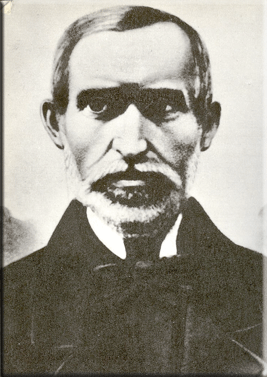Get Today in Masonic History into your Inbox. Sign up today for one of our email lists!
Need an article for your Trestleboard/Newsletter see our Use Policy
Simion Bărnuțiu Passes Away

Today in Masonic History Simion Bărnuțiu passes away in 1864.
Simion Bărnuțiu is a Transylvania-born Romanian philosopher and politician.
Bărnuțiu was born in Bocșa, Transylvania on July 21st, 1808. He would teach secondary school in Blaj, which at the time was part of the Austrian Empire. From a young age he was influenced by Kantianism, a philosophy put forth by Immanuel Kant a German Philosopher. Kantianism revolves around duty instead of emotions or end goals.
Bărnuțiu would begin writing for the Gazeta de Transilvania. In 1842 he would become a writer of note when he virulently opposed the decision of the Transylvania Diet. The Diet was the ruling body of Transylvania at the time and was dominated by Hungary (Magyar). The body was religious in nature and represented the three major religions in Transylvania a the time, of which Bărnuțiu was not a member of any of them.
In 1848, Bărnuțiu along with other authors, called for self-determination by Romanians living in Transylvania, this was in response to the successful petition of Magyar's in gaining rights from Emperor Ferdinand I. He also said that Romanians should reject the proposed union between the region and the Kingdom of Hungary until proportional representation was ensured and the official condemnation of serfdom.
In April of 1848, the Blaj Assembly convened. The Assembly was made up of clergy, commoners and intellectuals. Bărnuțiu addressed the assembly several times. When the second assembly occurred in May of that same year, Bărnuțiu was convinced to tone down his rhetoric. He would be elected as Vice President of the Permanent Committee which would be the basis of the National Romanian Committee.
After Russian Imperial Intervention in Transylvania, Bărnuțiu went into voluntary exile. He would settle in Iași, Moldavia's capital. He would live there the remainder of his life.
After falling gravely ill, Bărnuțiu requested permission to return to his home village. He would pass away on May 28th, 1864 from neuro-cardiac disease before he could reach his village.
It is believed that Bărnuțiu joined a masonic lodge in Iași while in exile.
This article provided by Brother Eric C. Steele.

